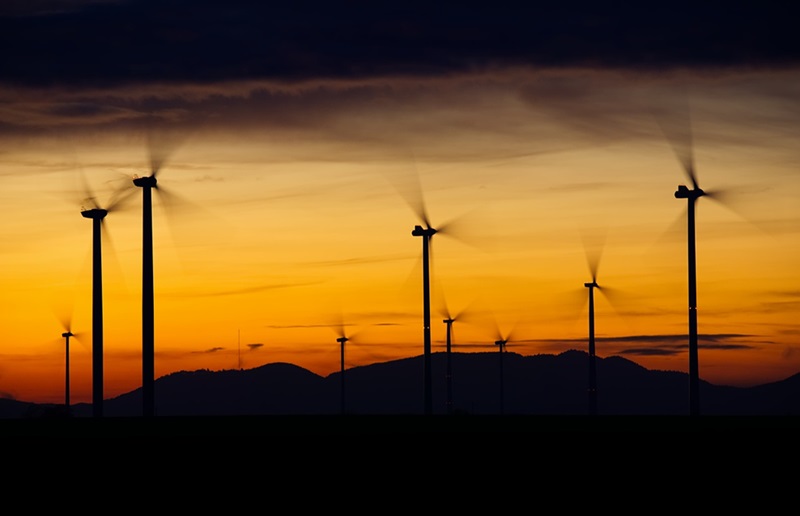The Benefits of Off-Grid Living: Environment and Money Matters

In today’s world, more people are thinking about living off the grid. That means they want to produce their own electricity and meet their daily needs without relying on the usual utility services. Off-grid living often means using clean and renewable energy sources like the sun and wind.
In this article, we’ll look at why this endeavor is becoming more popular and how it can be good for the environment and your wallet. You can then sign up for off grid systems in Ontario.
Protecting Our Environment
- Minimized Pollution: Off-grid systems harness clean energy from the sun and wind, unlike traditional power sources that release harmful greenhouse gasses, contributing to climate change mitigation.
- Improved Air and Water Quality: Off-grid systems do not produce pollutants that contaminate the air and water. This results in cleaner air for us to breathe and safer water sources, benefiting both our health and the environment.
- Preservation of Natural Spaces: Large power plants often disrupt natural habitats when constructed. In contrast, off-grid systems have a smaller environmental footprint, causing less harm to wildlife and plant ecosystems.
- Efficient Energy Utilization: Off-grid systems excel in utilizing energy efficiently, reducing wastage and ensuring the optimal use of available resources.
Saving Money
- Lower Bills: One of the big reasons people like off-grid living is that it can save money. When your off-grid system is set up, you can make your own electricity for free. This can mean no or much smaller monthly bills for power.
- Not Dependent on Others: With off-grid systems, you don’t need to rely on big companies for your power. This means you won’t be affected as much by changes in power prices or power outages. It’s like having a stable source of savings.
- Getting Your Money Back: While setting up an off-grid system can cost money at first, it often pays off in the long run. Many people find that they get their investment back through savings on energy bills.
- Higher Home Value: Homes with off-grid systems often sell for more money. Buyers are willing to pay extra for a home with lower bills and less impact on the environment.
- Government Help: In many places, the government gives help like tax breaks and discounts to encourage people to use renewable energy. This can make it even more affordable to set up an off-grid system.
Living Off the Grid
Living off the grid isn’t just about energy. It often means choosing a more self-reliant and responsible way of life. Here are some key things people consider:
- Water Independence: Off-grid folks often collect their own water, like rainwater or well water. This means they don’t rely on big water systems.
- Waste Management: Off-grid living usually involves being careful with waste and recycling. This reduces how much trash we make and helps the environment.
- Using Less: People off the grid often use fewer resources, like water and fuel. This makes life simpler and kinder to the planet.
- Connecting with Nature: The off-grid lifestyle often brings people closer to nature. They depend on natural resources and try to take care of them.
Challenges and Things to Think About
While off-grid living has many benefits, it’s also important to understand the challenges and things you should consider:
- Starting Costs: Setting up an off-grid system can be expensive. You need to buy things like solar panels, batteries, and other equipment.
- Maintenance: Off-grid systems need regular care to work well. This means checking batteries, making sure everything’s running smoothly, and sometimes fixing things.
- Saving Energy: Using energy wisely and storing it properly are very important for off-grid living.
- Managing Resources: You need to be careful with things like water and fuel to make sure you have enough for your daily needs.
- Changing Habits: Living off the grid might mean you have to change some of your daily routines and habits. It’s a choice that might not suit everyone.
Exploring Off-Grid Living
If you’re thinking about living off-grid, there are some important things to consider. Here are some key points:
- Location Matters: Where you choose to live off-grid is vital. Understand the local climate, rules, and access to resources like water and sunlight. Some places are better for off-grid living than others.
- Learning is Important: To succeed off-grid, you need to learn about renewable energy and sustainable living. There are courses, workshops, and online resources available to help you gain the knowledge and skills you’ll need.
- Start Small: You don’t have to go completely off-grid all at once. You can begin with small changes, like using solar panels or collecting rainwater for gardening. As you get more comfortable, you can expand your off-grid setup.
- Community Support: Connect with others who live off-grid. They can offer valuable advice and support. Learning from their experiences can make your off-grid journey easier.
- Plan and Budget: Create a clear plan and budget for your off-grid project. Consider the costs of equipment, installation, maintenance, and daily living. A well-thought-out plan will help you manage your resources effectively.
Keep in mind that off-grid living is a lifestyle choice that comes with its own challenges and rewards. By understanding the benefits and carefully planning, you can make an informed decision about whether it’s the right choice for you and your family.
Concluding Thoughts
Off-grid living is a way to help the environment and save money. By using clean energy, reducing pollution, and being self-sufficient, it will be good for the Earth and your wallet. While there are challenges, the off-grid lifestyle is a choice for those who want to be more responsible, self-reliant, and connected to nature.